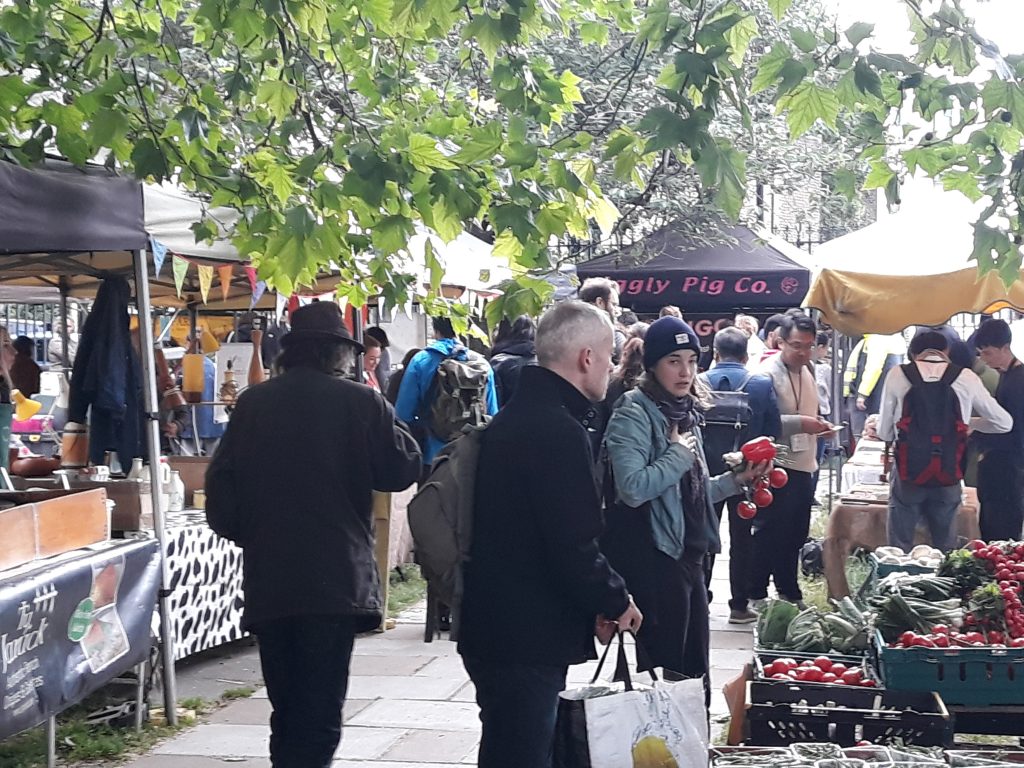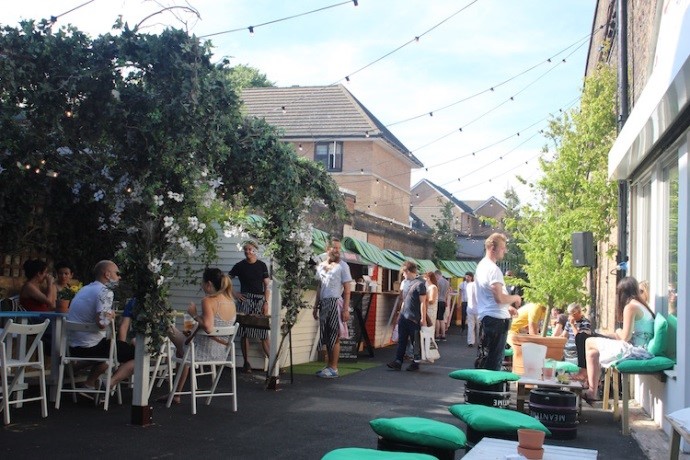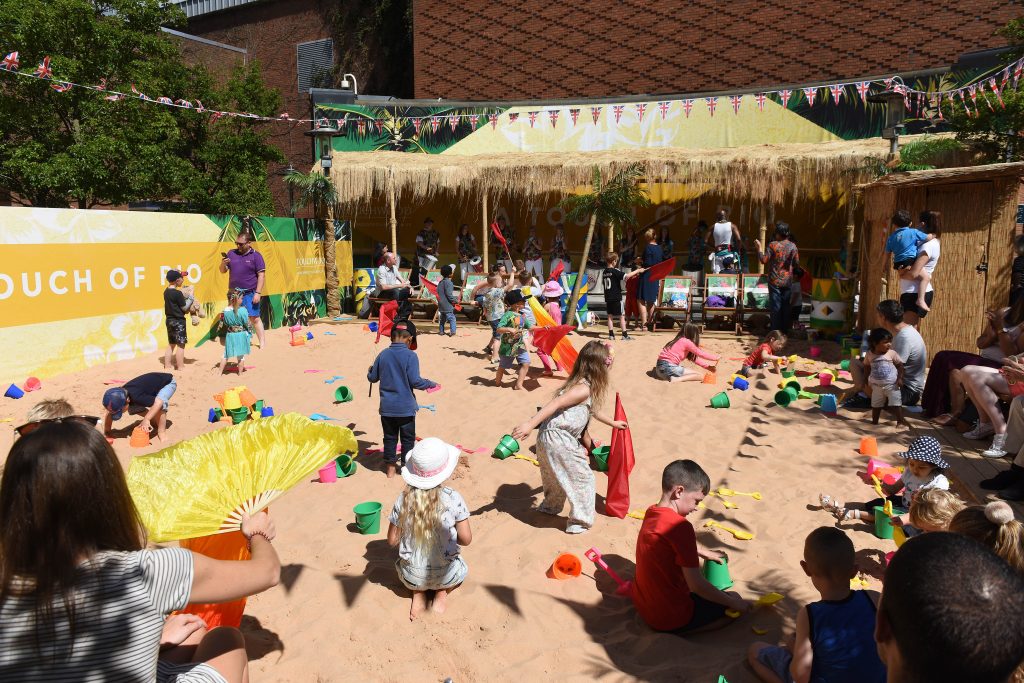The success of many retail, commercial and mixed-use assets is increasingly determined by the provision of a quality experience and positive social value for local communities, customers and occupiers. Creating places which reflect the needs and aspirations of the people who use them is an instrumental part of achieving this and has become a key element of an asset’s placemaking strategy.
As a result, Workman LLP have recruited a dedicated team with demonstrable experience within the placemaking and regeneration sectors, to form their new Activate placemaking consultancy. Activate will provide clients with a service which can conceive, develop and implement viable placemaking solutions for retail, leisure, office and business parks.
Andrew Sparrow, Workman’s new Director of Placemaking said:
“Having advised on regeneration projects and operated many retail, mixed-use and commercial developments, including Old Spitalfields Market, we’ve seen first-hand how local engagement and research is vital to understand what the target audience actually wants and requires. For example, within retail, people talk about the death of the high street, but our approach has been to identify local solutions to this national trend by working with independent operators, specialist consultants and local stakeholders”

The team’s operational track record enables Activate to support clients’ projects from the masterplanning stage through to operational delivery. Recent consultancy projects demonstrate this, with instructions ranging from: concept and business planning for the development of a new food hall; planning and promoting the relocation of a town centre market; and local research to support developer/local authority discussions on the future of a town centre mixed-use scheme.
“These instructions demonstrate our involvement throughout the development cycle of a project. We have found that our advice and expertise has benefited each element of a project from working with master planners at the planning stage, architects during the design and build, through to asset managers at the point of delivery. This has ensured consistency throughout the project and that the placemaking strategy was fully embedded within the scheme.”
“Meanwhile use” of a space refers to the short-term use of temporarily empty buildings or public realm, often during a redevelopment. Meanwhile use takes a potential problem and turns it into an opportunity, by testing possible long-term uses of the site. Implemented correctly it can have the following benefits:
- Helps keep an area vibrant and active
- Gives the chance to trial uses of the space, some of which may be taken forward into the final development. Often used in tandem with local community engagement.
- Brings together diverse stakeholders to help generate solutions and a collective vision
- Changes perceptions of the site, its opportunities, and its future role, as well as breaking down resistance to change.
- Fosters a community’s sense of pride in, and ownership of, their public spaces
- Generates the interest of potential investors, both public and private
- Creates local short and medium-term job opportunities as well as the chance for start-up businesses to “test the waters” with their product.
We’ve worked on a number of sites and developments where the activation of the right meanwhile use has had a really positive effect. Little Feast was a temporary food market introduced at Shepherd’s Bush Market, London where a run-down area behind the railway arches was transformed overnight into a brand-new temporary space for pop-up food traders. As well as regularly attracting queues around the block, Little Feast challenged the idea of the market as being just a place to buy fabric and household items.
Meanwhile use takes a potential problem and turns it into an opportunity

Another good example is Granby Winter Garden – a “secret indoor garden” within two houses in Liverpool, which was created within two dilapidated Victorian buildings as part of the Granby Four Streets rejuvenation project. The space contains a communal seasonal garden, events space and artist residence, intended to “nurture creative practice in the area”.
Just as with wider placemaking activities, it is vital when creating a meanwhile use strategy that it is relevant to the current and potential future local community. It is also important to understand the connection between the temporary and proposed permanent use of the site so that one feeds the other and the opportunity is not wasted. Finally, consider carefully how the short-term nature of the meanwhile use is communicated locally to prevent a negative local reaction if it is eventually removed.

Activate are pleased to have been appointed by U+I Plc to provide consultancy advice to support their development plans for a mixed-use scheme in the Midlands.
In support of the client’s discussions with the local authority regarding the scheme, we have been instructed to conduct initial research into the competing retail and leisure provision in the town and local catchment area, as well as provide indicative options for the site based on that insight.
While initial research has indicated that a mixed-use independent-led solution would meet the local authority’s regeneration objectives and enhance the town centre offer, particularly with the possible addition of a food hall, further research of the local community is required to complete the feasibility work.
Andrew Sparrow, Director of Placemaking said; “This is a great example of how placemaking ideas, based on local research and insight, can aid the development process at its inception and support the regeneration and re-positioning of town centre locations. We hope to be able to continue to support this scheme as it progresses.”
Whilst we are sure that the predicted “Death of the High Street” will prove to have been greatly exaggerated, there is no doubt that the retail sector needs to adapt to survive. The rise of online shopping has both reduced town centre footfall and spend, as well as elevated consumer expectations of the traditional shopping experience. How can bricks-and-mortar retailers compete? We believe it is by focusing on what online shopping cannot do, by creating an experience and a sense of place, hence the move by some online retailers into physical space.

Enter the art of placemaking…
Placemaking can help devise new concepts for re-purposing void retail space. Consumer and competitor research should inform a vision of what would draw footfall to the space and identify viable options including; independent retail, food and beverage, or alternative leisure uses.
At Activate we have seen first-hand the positive effects that the ‘re-imagining’ of retail space can have, particularly when focused on local, independent uses specific for that community. Examples include;
- Chester Market where members of the Activate team were involved in the reimagining of Chester Market. Footfall had decreased due to the closure of the bus station behind the market, ahead of the redevelopment of the area and relocation of the market. By removing redundant stalls and creating a comfortable, communal seating space, sightlines and dwell times greatly improved. More hot food traders were encouraged to try the market, and a regular events programme introduced. Within a few weeks footfall had increased by 50% and the market now remains open late on a Friday night, attracting a new, younger demographic and helping change perceptions of what Chester Market can be.
- Ocean Terminal – a Workman managed shopping centre in Edinburgh, like others around the country struggled to attract traditional retailers. Instead the on-site team approached local, independent businesses with a variety of uses. Not only did they succeed in letting seven units, but the new occupiers proved so successful, many have subsequently moved to larger units within the centre, and footfall as a whole has greatly increased. New occupiers included: Boardwalk skate park, Dog More dog creche, Scottish Design Exchange, Leith Collective, Mr Nick’s Greek Kitchen, Bike Craft and Living Memories, a local history, museum, community radio station.
While the struggles of the retail sector are clear, opportunities exist for those that can see beyond the traditional retail uses and identify local solutions based on specific community needs.